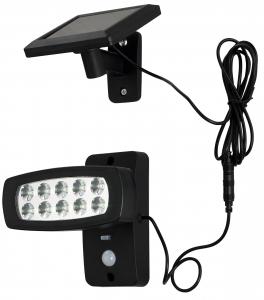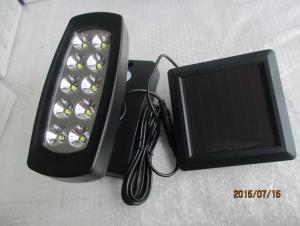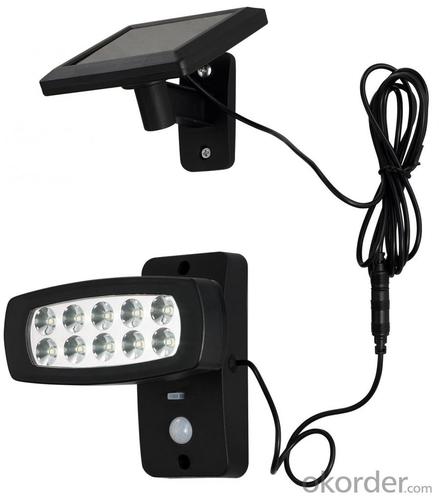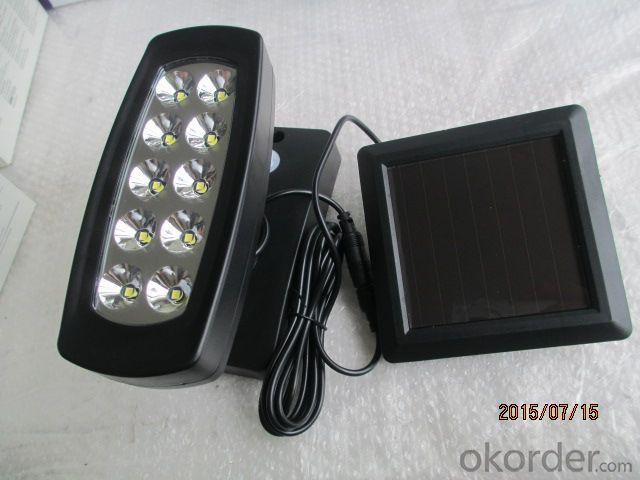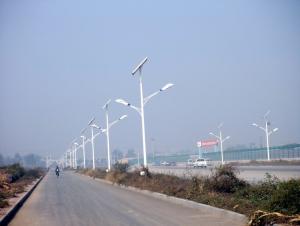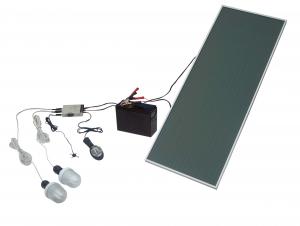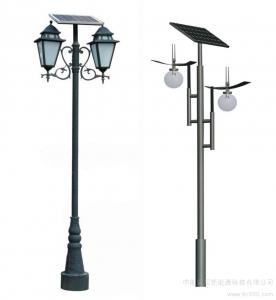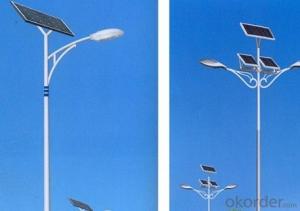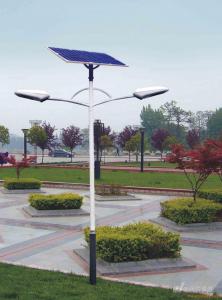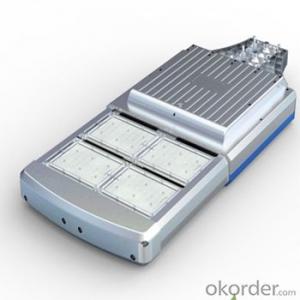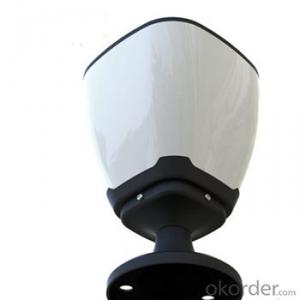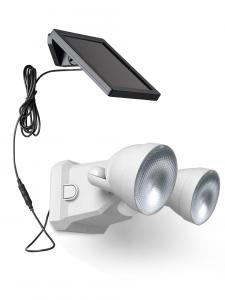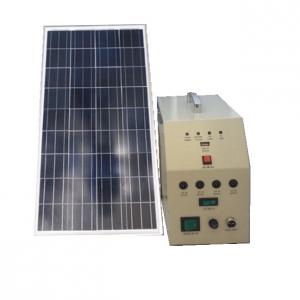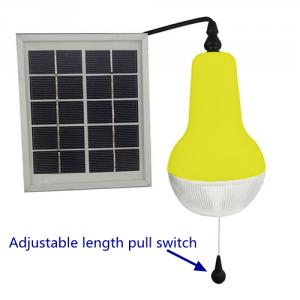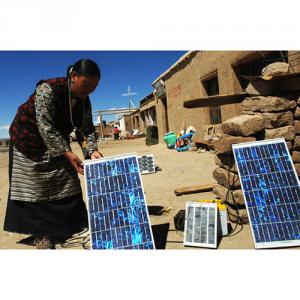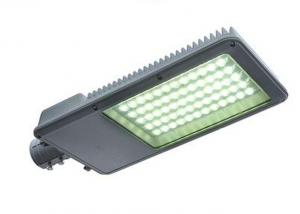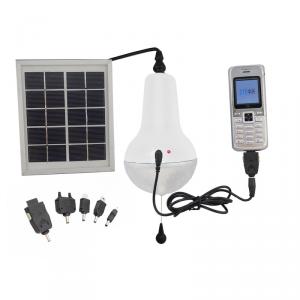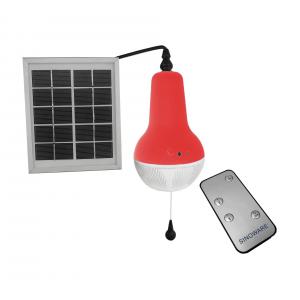SOLAR LIGHTING BT1538-1 SOLAR
- Loading Port:
- Ningbo
- Payment Terms:
- L/C,T/T
- Min Order Qty:
- 5000 Pieces pc
- Supply Capability:
- 5000 Pieces per Month pc/month
OKorder Service Pledge
Quality Product, Order Online Tracking, Timely Delivery
OKorder Financial Service
Credit Rating, Credit Services, Credit Purchasing
You Might Also Like
Included mounting accessories, Cable length:
2.5m
Modes: ON / OFF / PIR, rang: Approx.5-10m
Detection angle: Approx 90 degrees
Extra long buring time: Approx.8 hours when
fully charged and with ECO mode
Extra brightly if fully charged in PIR mode
Protection class: IP44
10LED, 3 batteryies with solar panel 150LM
Suitable places: Lawn, Garden, Park, Path, etc
2.5m
Modes: ON / OFF / PIR, rang: Approx.5-10m
Detection angle: Approx 90 degrees
Extra long buring time: Approx.8 hours when
fully charged and with ECO mode
Extra brightly if fully charged in PIR mode
Protection class: IP44
10LED, 3 batteryies with solar panel 150LM
Suitable places: Lawn, Garden, Park, Path, etc
- Q: What is the cost of installing solar lights?
- The cost of installing solar lights can vary depending on various factors such as the type and quality of the lights, the size of the area to be illuminated, and the complexity of the installation process. On average, the cost can range from $100 to $1,500 per light. However, it's important to consider the long-term benefits of solar lights, as they are powered by renewable energy and have minimal operating costs. Over time, solar lights can help save on electricity bills and reduce carbon emissions, making them a worthwhile investment in the long run.
- Q: Can solar lights be used for outdoor wedding lighting?
- Indeed, outdoor wedding lighting can certainly utilize solar lights. In fact, they present an exquisite option for imbuing your wedding venue with elegance and ambiance. Solar lights are effortlessly installed without the need for any wiring, making them highly convenient for outdoor events. Additionally, they possess energy efficiency and eco-friendliness, harnessing solar power to produce light. A variety of styles and designs are available for solar lights, including string lights, lanterns, and pathway lights, enabling you to craft your desired wedding atmosphere. Whether you desire to line the walkway, illuminate the reception area, or adorn the trees, solar lights offer a breathtaking and enchanting lighting solution for your outdoor wedding.
- Q: How do solar lights handle radio frequency interference?
- Solar lights are not typically designed to combat radio frequency interference (RFI), so they do not directly handle it. However, due to their design and nature, solar lights are generally not prone to RFI. The operation of solar lights involves the use of photovoltaic cells, which convert sunlight into electricity. They are powered by solar panels that absorb sunlight during the day and store the energy in rechargeable batteries. This means that solar lights do not rely on external power sources or electrical connections, reducing the chances of RFI. RFI can occur when various electronic devices emit electromagnetic waves that interfere with radio signals. In the case of solar lights, they do not have internal electronics or electrical components that produce electromagnetic radiation, making it less likely for them to emit interference that disrupts radio frequencies. However, it is important to note that solar lights may still be affected by external RFI sources if they are positioned near devices that emit strong radio signals. For instance, if a solar light is placed close to a powerful radio transmitter or other electronic equipment, there is a possibility of interference. In such instances, the interference can potentially affect the performance of the solar light, causing flickering, inconsistent operation, or even complete failure. Nonetheless, this occurrence is relatively uncommon and depends on specific circumstances and the strength of the interfering radio signals. To minimize the risk of interference, it is advisable to install solar lights away from strong RFI sources and ensure proper shielding if necessary. Additionally, choosing high-quality solar lights from reputable manufacturers is important, as they are more likely to have undergone testing and incorporated measures to reduce the risk of RFI.
- Q: How do I choose the right solar light for my needs?
- To choose the right solar light for your needs, consider factors such as the purpose of the light, its brightness level, battery capacity, and installation options. Determine whether you need the light for decorative purposes, security, or practical use. Select a brightness level that suits your requirements, keeping in mind that higher brightness may require larger solar panels and batteries. Check the battery capacity to ensure it can provide sufficient power during the desired duration of illumination. Lastly, evaluate installation options to find a light that can be easily mounted or positioned in the desired location.
- Q: Can solar lights be used to light up pathways and driveways?
- Pathways and driveways can be illuminated using solar lights. These lights are designed to capture solar energy and convert it into electricity, which powers the lights. They typically have solar panels that absorb sunlight during the day and store the energy in rechargeable batteries. When the sun sets, the lights automatically turn on, providing illumination for pathways and driveways. Solar lights are a popular and cost-effective choice for outdoor lighting because they don't require any wiring or electricity from the main grid. This makes them easy to install and environmentally friendly. Moreover, solar lights come in various styles and brightness levels, allowing you to select the perfect option for your pathway or driveway lighting requirements.
- Q: How do solar lights handle high humidity?
- Solar lights are generally designed to handle high humidity conditions. The components of solar lights, such as the solar panels and batteries, are usually weatherproof and can withstand moisture. However, excessive humidity might affect the performance and efficiency of solar lights. Regular maintenance and cleaning can help ensure their optimal functioning in high humidity environments.
- Q: Can solar lights be used as a primary light source?
- Solar lights can be used as a primary light source in certain situations, such as in outdoor areas or remote locations where access to electricity is limited. However, their effectiveness and reliability may vary depending on factors like sunlight availability, battery capacity, and overall design. In urban or heavily populated areas with consistent electricity supply, solar lights may not be as practical for primary lighting needs.
- Q: Are there different colors available for solar lights?
- Solar lights usually come in various colors. White or a soft white/yellowish light is the most common color for solar lights, but manufacturers now provide a range of color options. Among the popular choices are warm white, cool white, blue, green, red, and multi-color changing lights. These color variations can enhance the aesthetics of your outdoor area and enable you to create different atmospheres or themes according to your liking.
- Q: Can solar lights be used to illuminate flagpoles?
- Yes, solar lights can be used to illuminate flagpoles. Solar-powered flagpole lights are specifically designed to provide illumination for flags during the night using solar energy. These lights are easy to install, require no electricity, and are an eco-friendly option for flagpole illumination.
- Q: How do solar lights handle electromagnetic interference or radio frequencies?
- Solar lights are generally not affected by electromagnetic interference or radio frequencies. This is because solar lights do not rely on any electronic components that are susceptible to interference. Solar lights work by converting sunlight into electrical energy through photovoltaic cells, which is then stored in a battery for later use. The generated electricity is used to power the LED lights in the solar light. Since solar lights do not have any complex electronic circuitry or antennas, they are not prone to electromagnetic interference or radio frequency interference. Therefore, solar lights are not affected by external sources of electromagnetic radiation or radio frequencies, allowing them to operate reliably in various environments without any interference issues.
Send your message to us
SOLAR LIGHTING BT1538-1 SOLAR
- Loading Port:
- Ningbo
- Payment Terms:
- L/C,T/T
- Min Order Qty:
- 5000 Pieces pc
- Supply Capability:
- 5000 Pieces per Month pc/month
OKorder Service Pledge
Quality Product, Order Online Tracking, Timely Delivery
OKorder Financial Service
Credit Rating, Credit Services, Credit Purchasing
Similar products
Hot products
Hot Searches
Related keywords
